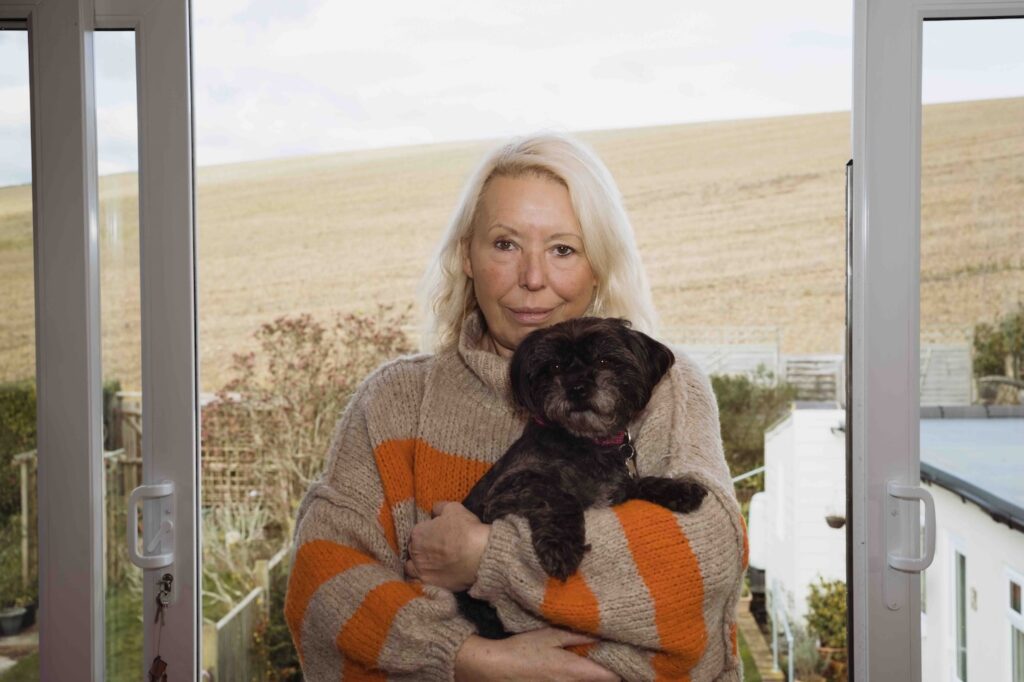Singer Barb Jungr’s Version of Leonard Cohen’s ‘Hallelujah’ Is Powerful Enough To Change One Critic’s Opinion
Jungr has made a specialty of brilliant interpretations of composers from the era of rock and singer-songwriters, establishing that their music can be reconstructed and reinterpreted.

Barb Jungr With Simon Wallace
‘Hallelujah on Desolation Row: The Songs Of Bob Dylan and Leonard Cohen’
Kristalyn Records
While I don’t frequently acknowledge that “Hallelujah” is not my favorite song by Leonard Cohen — such an opinion can get me into a lot of trouble with my more ascetic colleagues — I do freely admit that it’s a masterpiece. Yet when I hear a singer in a club announce that she’s about to do a Cohen song, I cross my fingers and pray for either “Suzanne” or “Dance Me to the End of Love.”
If there’s anyone who could help move “Hallelujah” to the top of my list, though, it’s Barb Jungr. It was 20 years ago that I discovered her seminal 2002 album, “Every Grain of Sand: Barb Jungr Sings Bob Dylan,” which had the effect of transforming me from someone who merely appreciated the music of Bob Dylan, in something of an abstract sense, to someone who truly loved the Dylan canon, and ranks him as one of the great musical auteurs of all-time.
Ms. Jungr is a British singer, writer, and “cabaret” artist — for lack of a better term — who has made a specialty of brilliant interpretations of composers from the era of rock and singer-songwriters, primarily Mr. Dylan but also Cohen, Sting, Bruce Springsteen, Lennon & McCartney, and Jacques Brel.
Her breakthrough innovation, as showcased on the “Every Grain of Sand” album, was establishing that their music can be reconstructed and reinterpreted in fresh, original ways — parallel to what jazz musicians had already been doing for decades with the songs of Cole Porter, Irving Berlin, and the other major creators of the Great American Songbook.
After reinterpreting roughly a hundred Dylan songs, both iconic and comparatively obscure, “Desolation Row,” from the 1965 “Highway 61,” is one of the remaining major songs that Ms. Jungr has not tackled until now, perhaps because of its length. At 10 verses and 10 minutes, this is an epic poem to contend with “The Ancient Mariner,” “The Wild Party,” and even Jelly Roll Morton’s “The Murder Ballad.”
“Desolation Row” is essentially a collection of vignettes, populated from both the songwriter’s imagination and the pages of both popular and high-brow culture, from Albert Einstein to the Phantom of the Opera and Casanova. It’s challenging to connect the dots and figure out exactly what all these characters have in common and precisely what they’re doing on the titular street, Desolation Row.
Ms. Jungr sings the rambling text with so much specificity that it hardly seems like random tableaux but rather a coherent narrative, a logical portrayal of … well, something.

While “Desolation Row” is, as I anticipated, a major triumph, her “Hallelujah” takes me completely by surprise. It was in the final decade or so of Cohen’s life (1932-2016) that “Hallelujah” was seemingly inescapable on film soundtracks and in concerts.
As for me, I never knew what to make of the wildly inconsistent tone of the text: It’s essentially a religious song that opens with a reference to David playing on his harp, includes images from the Old Testament, and then proceeds to give a brief lesson in elementary musicology. (“It goes like this, the fourth, the fifth / The minor falls, the major lifts.”) Interspersed throughout there are these almost perversely simple, deliberately anarchic forced rhymes that suggest a big band-era comedy song in which the sacred cry of “Hallelujah” gets rhymed repeatedly with “do ya?” and “to ya?” Somehow it makes me think of Moe and Curly Howard.
The song completely contradicts itself over and over, yet Ms. Jungr is the first singer I’ve ever heard who makes sense of it, largely by leaning into those apparent discrepancies. It gradually becomes clear that “Hallelujah” might be regarded, rather like “Over the Rainbow,” as a song about a song — “Rainbow” speaks of a land described in a lullaby, “Hallelujah” begins with a search for a secret chord, not necessarily a direct reference to Arthur Sullivan’s “Lost Chord” but a deliberate blending of music and mysticism.
Ms. Jungr’s “Hallelujah” is suitably rhythmic — which prevents it from getting too pious — and features musical director Simon Wallace wailing away on Hammond organ, which brings us back to mid-’60s Dylan, as in “Highway 61 Revisited.” Where most singers of Dylan and Cohen come out of a folk-pop tradition and thus sing in a straightforward drone — the better to focus on the words rather than the voice — Ms. Jungr is informed by both jazz and musical theatre.
When she sings, “She tied you to a kitchen chair / She broke your throne, and she cut your hair,” it comes off as a legitimate conversation between one human being and another, warm and personal. It’s not about gods and kings, it’s about people. At long last, I think I get it now.

